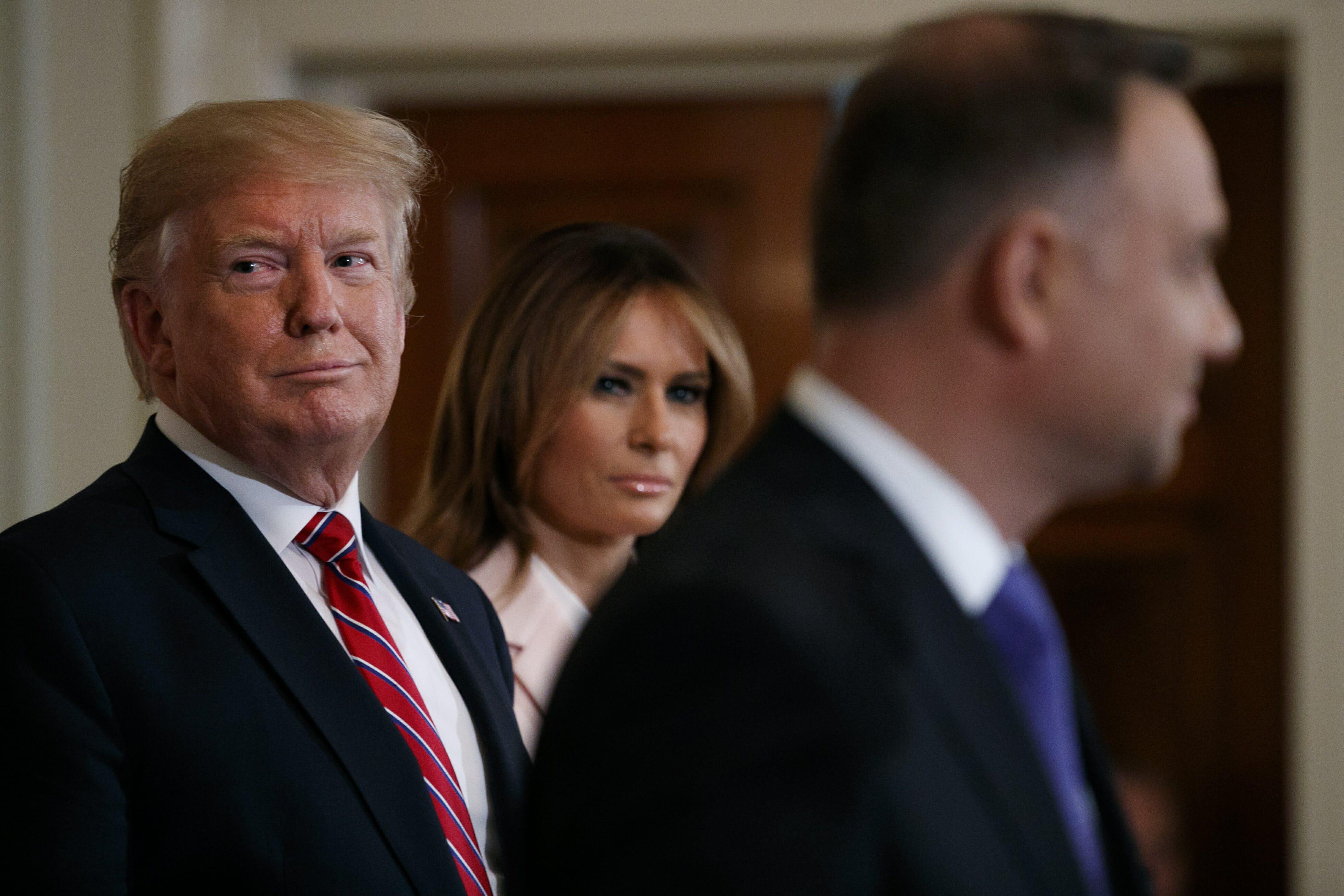
Trump says he'd 'want to hear' foreign dirt on 2020 rivals
WASHINGTON (AP) — President Donald Trump said Wednesday that if a foreign power offered dirt on his 2020 opponent, he’d be open to accepting it and that he’d have no obligation to call in the FBI.
“I think I’d want to hear it,” Trump said in an interview with ABC News, adding, “There’s nothing wrong with listening.”
The role of Trump’s eldest son, Donald Trump Jr., in organizing a 2016 meeting with a Russian lawyer offering negative information on Hillary Clinton was a focus of special counsel Robert Mueller’s probe of Russian meddling in the last presidential campaign.
Mueller painstakingly documented Russian efforts to boost Trump’s campaign and undermine that of his Democratic rival. But while Mueller’s investigation didn’t establish a criminal conspiracy between Russia and Trump’s campaign, Trump repeatedly praised WikiLeaks in 2016 and celebrated information exposed by Russian hackers.
One of Trump’s challengers, former Vice President Joe Biden, tweeted: “President Trump is once again welcoming foreign interference in our elections. This isn’t about politics. It is a threat to our national security. An American President should not seek their aid and abet those who seek to undermine democracy.”
Several of Trump’s other Democratic opponents in the 2020 race, including Sens. Elizabeth Warren, Bernie Sanders and Kirsten Gillibrand and former Rep. Beto O’Rourke, repeated their calls to begin impeachment hearings in the wake of the president’s latest remarks.
Trump’s comments came just a month after he pledged not to use information stolen by foreign adversaries in his 2020 reelection campaign, even as he wrongly insisted he hadn’t used such information to his benefit in 2016.
During a question-and-answer session with reporters in the Oval Office in May, Trump said he “would certainly agree to” that commitment.
“I don’t need it,” he said as he met with Hungarian Prime Minister Viktor Orbán. “All I need is the opponents that I’m looking at.”
Trump also insisted erroneously that he “never did use, as you probably know,” such information, adding: “That’s what the Mueller report was all about. They said no collusion.”
FBI Director Christopher Wray told lawmakers that Donald Trump Jr. should have called his agency to report the offer.
But Trump, who nominated Wray to the role in 2017, told ABC News that he disagrees. “The FBI director is wrong,” the president said. He added, “Life doesn’t work like that.”
Asked whether his advisers should accept information on an opponent from Russia, China or another nation or call the FBI this time, Trump said, “I think maybe you do both,” expressing openness to reviewing the information.
“I think you might want to listen,” he said. “There’s nothing wrong with listening. If somebody called, from a country — Norway — we have information on your opponent. Oh, I think I’d want to hear it.”
The Western Journal has not reviewed this Associated Press story prior to publication. Therefore, it may contain editorial bias or may in some other way not meet our normal editorial standards. It is provided to our readers as a service from The Western Journal.
Truth and Accuracy
We are committed to truth and accuracy in all of our journalism. Read our editorial standards.
Advertise with The Western Journal and reach millions of highly engaged readers, while supporting our work. Advertise Today.












